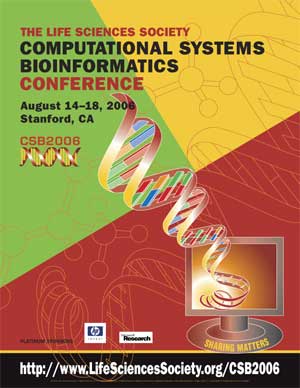A METHODOLOGY FOR MOTIF DISCOVERY EMPLOYING ITERATED CLUSTER RE-ASSIGNMENT
Osman Abul*, Finn Drabløs, Geir Kjetil Sandve
Department of Cancer Research and Molecular Medicine, Norwegian University of Science and Technology, Trondheim, Norway. osman.abul@ntnu.no
Comput Syst Bioinformatics Conf. August, 2006. Vol. 5, p. 257-268. Full-Text PDF
*To whom correspondence should be addressed.

Motif discovery is a crucial part of regulatory network identification, and therefore widely studied in the literature. Motif discovery programs search for statistically significant, well-conserved and over-represented patterns in given promoter sequences. When gene expression data is available, there are mainly three paradigms for motif discovery; cluster-first, regression, and joint probabilistic. The success of motif discovery depends highly on the homogeneity of input sequences, regardless of paradigm employed. In this work, we propose a methodology for getting homogeneous subsets from input sequences for increased motif discovery performance. It is a unification of cluster-first and regression paradigms based on iterative cluster re-assignment. The experimental results show the effectiveness of the methodology.
[CSB2006 Conference Home Page]....[CSB2006 Online Proceedings]....[Life Sciences Society Home Page]